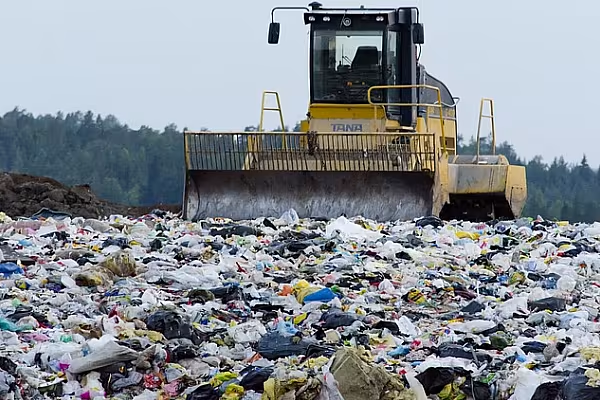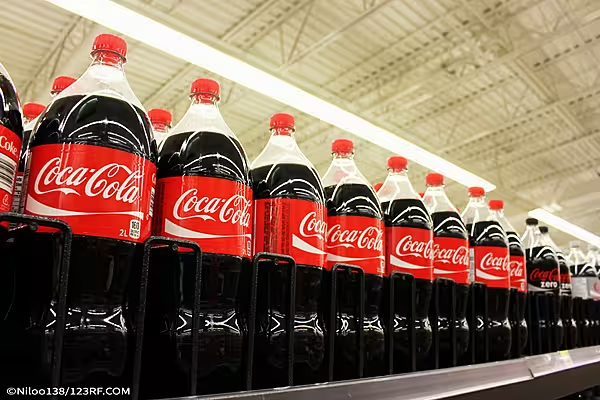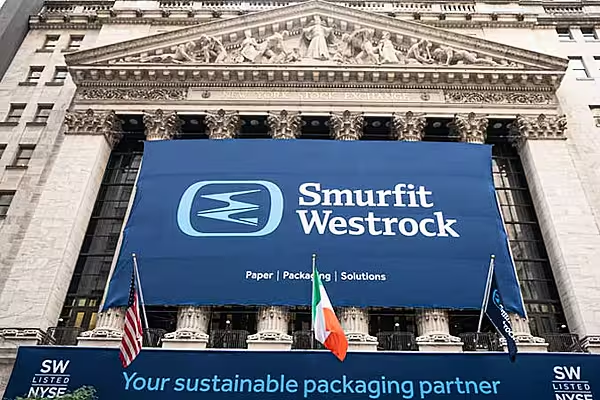A coalition of 150 organisations, politicians and academics are calling for a global ban on oxo-degradable plastics.
The group, which includes M&S, PepsiCo, Unilever, and ten Members of the European Parliament (MEPs), signed a statement released by the British Ellen MacArthur Foundation.
“Oxo-degradable plastic packaging is not a solution to soil or marine pollution - on the contrary, it contributes to microplastic pollution and poses an environmental risk,” said The New Plastics Economy, an initiative developed by the Foundation, which that works for a better system of plastic use.
The signatories of the statement include a range of leading businesses, industry associations, NGOs, scientists, and elected officials.
Among them are M&S, PepsiCo, Unilever, Veolia, British Plastics Federation Recycling Group, Gulf Petrochemicals and Chemicals Association, Packaging South Africa, Greenpeace, World Wildlife Fund (WWF), Plymouth Marine Laboratory.
PepsiCo joined the initiative in May 2017 to tackle packaging waste by pledging to switch to 100% recyclable packaging by 2025.
Oxo-degradable Plastics
Oxo-degradable plastics are commonly used for single-use objects such as carrier bags, blister packaging, bottles, labels, and caps.
The material includes additives that are designed to accelerate oxidation, which leads to the plastic fragmenting and embrittling under UV light or oxygen. It may then be biodegraded by bacteria and fungi at a rate depending on its environment.
These types of plastics have been marketed internationally as a safely biodegradable alternative to other materials. However, they have come under increased scrutiny due to a lack of proof of their biodegradability.
In November 2014, MEPs proposed a complete ban on those plastics within the EU. As a response, the European Commission published a study in August 2016 investigating the impacts of the controversial plastics.
Pollution Hazard
The EU study and a significant body of further evidence suggest that oxo-degradable plastics contribute in two ways to further pollution: by not degrading properly and by not being maintainable for high-value use.
Because oxo-degradable plastics break down into small pieces, they contribute to micro-plastics pollution, particularly in the ocean.
The EU study found that while the plastics can biodegrade under certain circumstances, there is still doubt as to whether they do so fully or within reasonable time periods in practice. For instance, if UV exposure is only fleeting biodegradation is slowed down significantly or doesn't take place at all.
The New Plastics Economy initiative warns that misrepresenting the bags as being fully biodegradable could even incentivise littering:
“Oxo-degradable plastics are often marketed as a solution to littering by claiming they are degradable - a marketing statement which is prone to confuse consumers and the wider public and may actually incentivise littering.”
Local Initiatives
Some retailers and countries have already taken matters into their own hands. Tesco dropped the bag in 2011 after they noticed that reusing the bags made them weaker and that customers were double bagging at the tills, according to PackagingNews.
According to the EU study, the shorter shelf-life of the oxo-degradable bags was a trade-off for their supposed biodegradability.
In August 2017, the Tesco introduced a 'Bag for Life', composed of 94% recycled plastic to replace single-use bags.
France went so far as to ban the use of oxo-degradable plastics entirely in 2015.
However, several countries in the Middle-East and Africa still promote the use of oxo-degradable plastics or have even made their use mandatory. This is the case in the United Arab Emirates, Saudi Arabia, areas of Pakistan, Yemen, Ivory Coast, South Africa, Ghana and Togo.
The New Plastics Economy recommends banning oxo-degradable plastic packaging globally as a precautionary measure until extensive, independent third-party research and testing based on international standards clearly confirms sufficient biodegradation of the plastic fragments in different types of environments and over a short enough time-scale for particles to accumulate.
© 2017 European Supermarket Magazine – your source for the latest retail news. Article by Kevin Duggan. Click subscribe to sign up to ESM: The European Supermarket Magazine.














